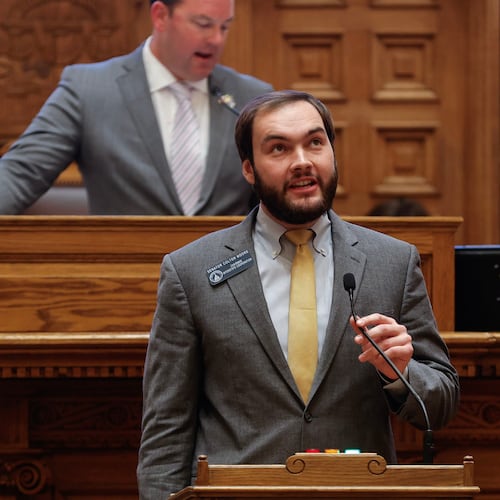The MARTA Board of Directors has told the state Attorney General's Office it did not violate open government laws by its actions at recent meetings.
The Georgia Open Meetings Act requires government bodies to conduct their business in public, and to provide proper notice of what issues will be discussed. Three Decatur residents recently complained that the board violated the law on June 22, when it approved several items that did not appear on its agenda in advance.
Two of those items waived ethics rules to allow former employees to take jobs with MARTA contractors within a year of leaving the agency. The third was a settlement of a lawsuit against the agency. Another matter was the board's decision to keep a $1 fare for the Atlanta Streetcar.
In a separate complaint, journalist Maggie Lee said the board held its Aug. 2 work session in a room so small it could not accommodate the public and the media, even though a larger space was available.
In response to the complaints, Assistant Attorney General Jennifer Colangelo recently asked MARTA to explain its actions. In a letter dated Aug. 23, MARTA attorney Paula Nash said the board's actions did not violate state law.
Nash cited a provision of the Open Meetings Act that says “failure to include on the agenda an item which becomes necessary to address during the course of a meeting shall not preclude considering and acting upon such items.”
She said the board discussed the lawsuit during a June 22 closed session (as allowed by law) and needed to “act on the proposed settlement in a timely fashion and to avoid incurring unnecessary litigation costs.”
Nash said the two ethics waivers were “time sensitive, because the former employees had already left MARTA, but could not begin working at their new employment without board approval.” She said the matters were not controversial but were “very important” to the two former employees.
“It would have been unfair and potentially harmful to those people to delay the board’s approval until the next month’s meeting,” she wrote.
Nash said the Streetcar fare decision was an amendment to MARTA’s annual budget, and the budget was on the meeting agenda. MARTA originally planned to make the streetcar fare free, but Nash said the decision to keep the $1 fare arose from security concerns raised in a work session immediately preceding the June 22 regular meeting.
As to Lee’s complaint, Nash said the board holds work sessions in a room that holds 40 to 50 people, though few members of the public usually attend. The Aug. 2 work session was live-streamed into a room with more seating capacity, but Nash acknowledged there were “technical difficulties” with the audio.
“When MARTA realized that the technical problems couldn’t be quickly repaired, several of the individuals waiting in the boardroom were brought into the work session room,” she wrote.
Colangelo asked MARTA to respond to the complaints as part of a mediation program to resolve disputes between residents and government agencies over open government issues. As of Monday afternoon, the Attorney General’s Office had not responded to MARTA’s explanations.
About the Author
Keep Reading
The Latest
Featured



